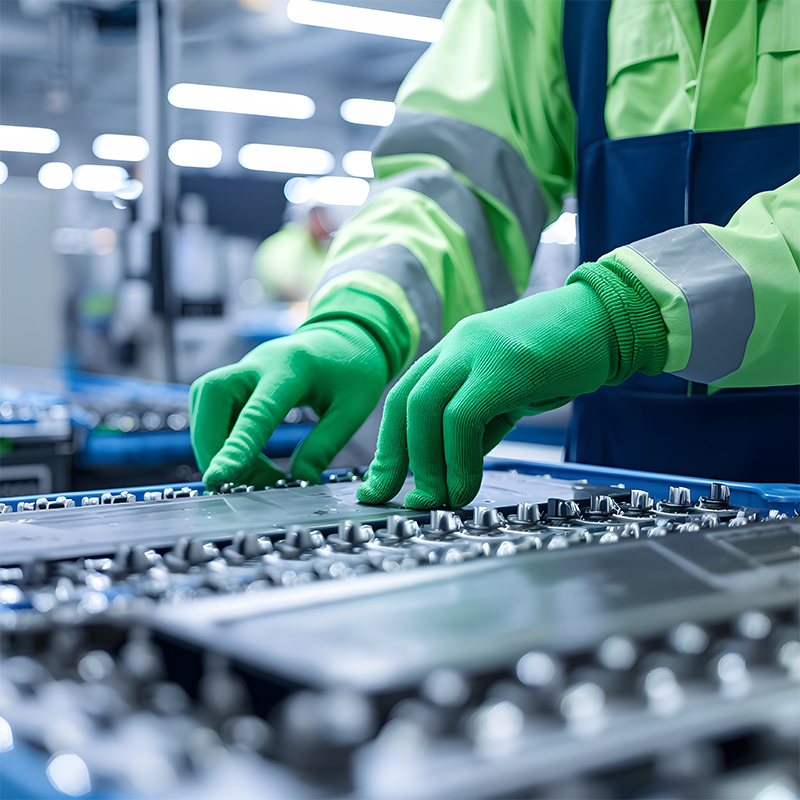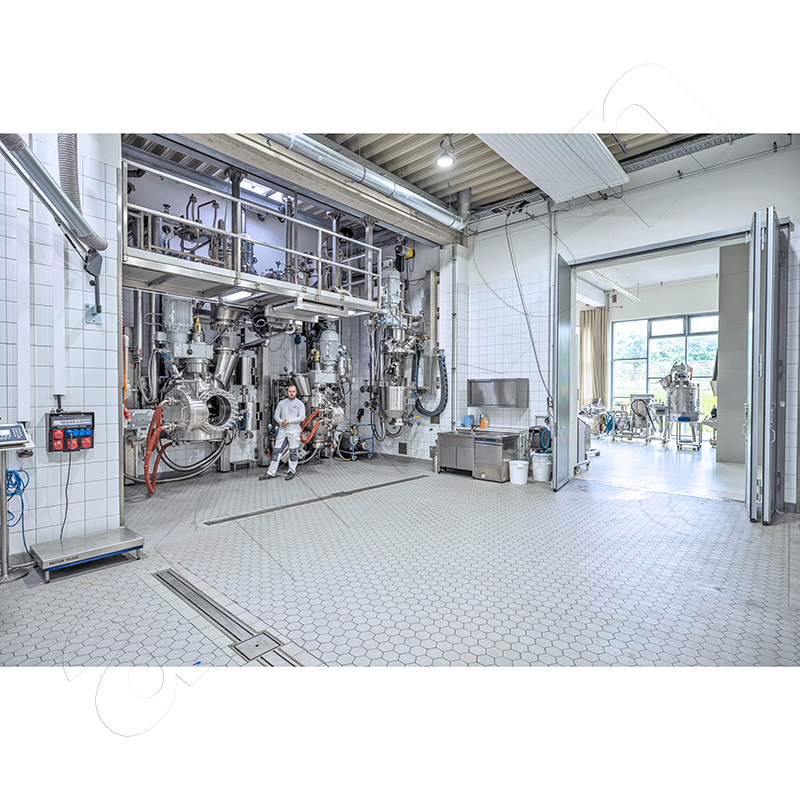Lithium-ion batteries: Recycling valuable materials
Wherever lithium-ion batteries are developed today, the question of efficient recycling plays a decisive role. It is all about good separability at the end of the service life. All recyclable materials should be recovered in high purity.
Efficient recycling is a top priority right from the development stage. Only an efficient circular economy can counteract the scarcity of raw materials. Production, utilisation and recycling processes must have a good CO2 balance.
The process routes for the extraction of primary raw materials and the recycling of active battery materials were initially similar. Pyro- and hydrometallurgical processes are used in succession. These topics are being researched at full speed worldwide.
According to the latest scientific findings, many purification processes based on hydrometallurgy appear to be more efficient. This has advantages in terms of energy consumption. The production of process-related pollutants is also significantly lower.
Piloting on an industrial scale
amixon® offers testing possibilities on an industrial scale and goes far beyond the laboratory scale. Batch sizes of 100 litres, 200 litres, 400 litres up to 3000 litres can be realised in the amixon® pilot plant. This enables amixon® to carry out practical pilot tests.
- The amixon® vacuum dryer can be used like a vacuum still. The precise temperature and pressure control enables a high degree of selectivity. This means that fluids can be recovered in high purity. For example, electrolytes from crushed lithium-ion batteries can be vaporised and recondensed at low temperatures.
- An amixon® test apparatus can even be used in vacuum operation up to an operating temperature of 350°C. In this respect, it should be examined whether the high-boiling polyvinylidene fluoride (melting point 175°C, boiling point from 300°C) can also be isolated in the amixon® dryer. Polyvinylidene fluoride serves as a binding agent in the lithium-ion battery.
- The coating of all parts in contact with the product with extremely hard high-performance ceramics is possible on request.
- Another amixon® test reactor for 200-litre batches can be used for high-pressure reactions. At a temperature of 250°C, the permissible operating overpressure is 25 bar.
Thermal solid-liquid separation is at the end of many process steps
The solvents of the liquid electrolyte can be vaporised in the amixon® vacuum dryer at low temperatures. A vacuum of up to 5 mbar can be achieved in the vacuum mixing dryer. Condensation can take place at -20 °C.
In this way, solvents such as dimethyl carbonate, ethyl methyl carbonate and diethyl carbonate can be recovered separately.
The active electrode materials should preferably be processed in a wet process at low temperatures. After separation, the valuable materials lithium, cobalt, manganese, nickel and graphite must be dried. Various drying processes are used, which are usually carried out in batches.
Vacuum contact drying from amixon® with dead space-free mixing of all components enables drying in a closed system with high purity and outstanding drying efficiency.
Efficient recycling is only possible with homogeneous masses
Lithium-ion batteries will play an increasingly important role in the automotive sector. Ever larger plants are being built to process the raw materials and recycle the cathode and anode active materials. Different process routes will be established depending on the type of lithium-ion battery. The more homogeneous the starting materials are, the more precisely they can be realised. Large-volume homogenisation is an important prerequisite.
amixon® offers excellent solutions for this. One example is the Gyraton® mixer, which can homogenise large quantities of bulk material in a technically optimal way. And all this with one and the same machine, either continuously or discontinuously. Gyraton® mixers only require very small drive motors.
© Copyright by amixon GmbH

![[Translate to English:] Neue Hochleistungsreaktoren mit amixon®-Technologie. [Translate to English:] Neue Hochleistungsreaktoren mit amixon®-Technologie.](/fileadmin/user_upload/Technikum_18_Bild_2.jpg)


![[Translate to English:] Beispielhafte Vakuum-Mischtrocknung [Translate to English:] Beispielhafte Vakuum-Mischtrocknung](/fileadmin/user_upload/Lithium_Hydroxid_Versuch.jpg)
![[Translate to English:] amixon® Konustrockner [Translate to English:] amixon® Konustrockner](/fileadmin/_processed_/6/3/csm_Fertigung_29_Bild_2_519333b7e9.jpg)
![[Translate to English:] Gyraton® Mischer für 50 m³ Chargen [Translate to English:] Gyraton® Mischer für 50 m³ Chargen](/fileadmin/user_upload/GM_50000_Bild_2.jpg)
![[Translate to English:] Gyraton®-Mischer für Testzwecke [Translate to English:] Gyraton®-Mischer für Testzwecke](/fileadmin/user_upload/Gyraton_GM_3000_Technikum_Versuch_2.jpg)